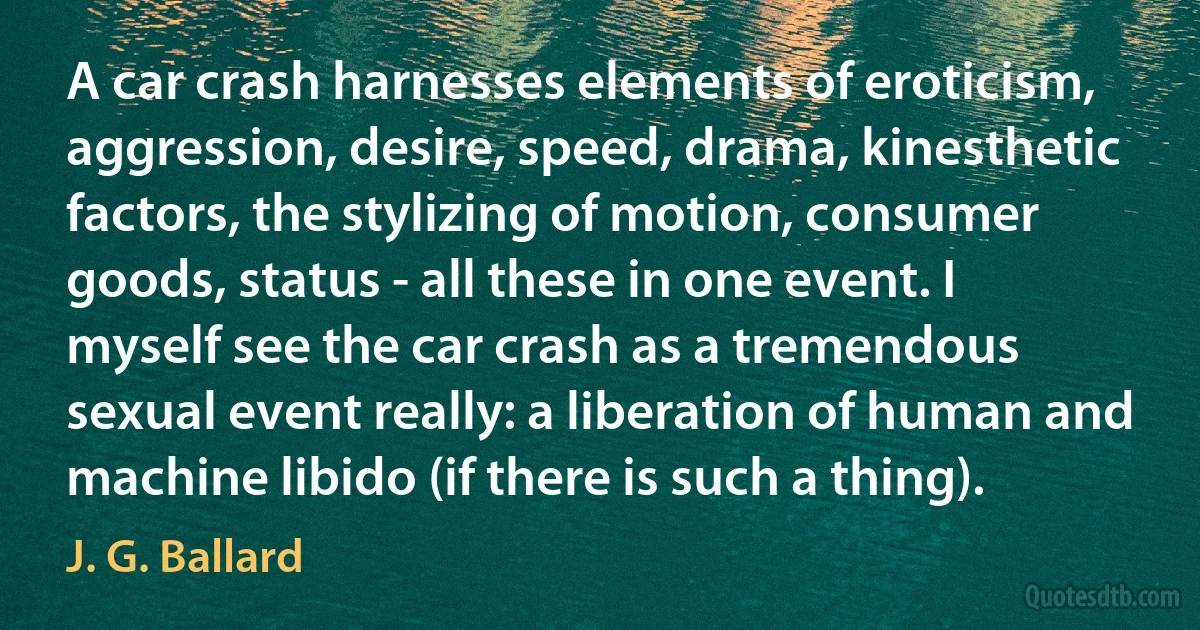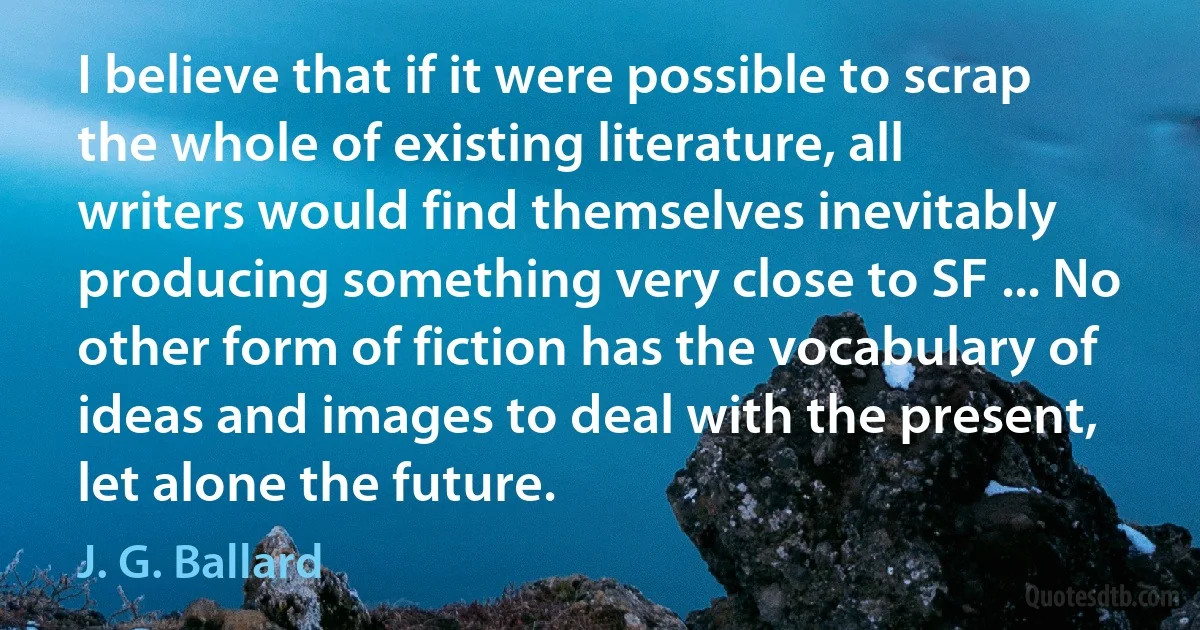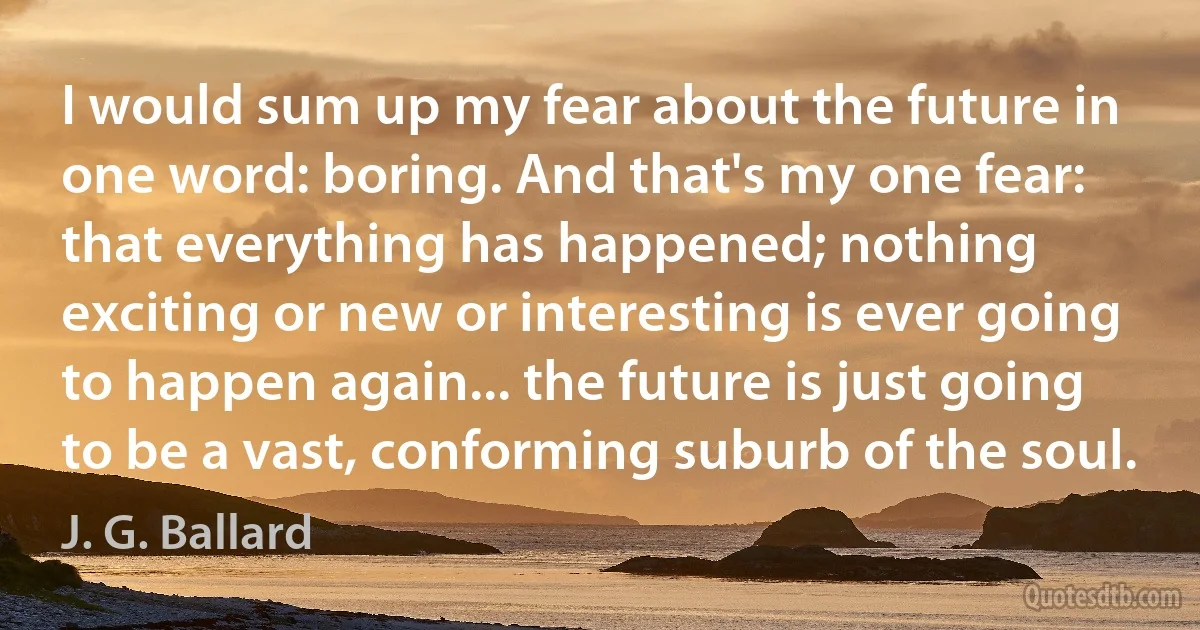J. G. Ballard quotes - page 2
Some people didn't like the novel, it is in some ways extremely bleak. But if you are dealing with the kind of subjects I am - trying to demystify the delusions we have about ourselves, to get a more accurate fix on human nature - then people are unsettled. And the easiest way to deal with that is to say it's weird or it's cold.

J. G. Ballard
The bourgeois novel is the greatest enemy of truth and honesty that was ever invented. It's a vast, sentimentalizing structure that reassures the reader, and at every point, offers the comfort of secure moral frameworks and recognizable characters. This whole notion was advanced by Mary McCarthy and many others years ago, that the main function of the novel was to carry out a kind of moral criticism of life. But the writer has no business making moral judgments or trying to set himself up as a one-man or one-woman magistrate's court. I think it's far better, as Burroughs did and I've tried to do in my small way, to tell the truth.

J. G. Ballard
By the time I came to England at the age of sixteen I'd seen a great variety of landscapes. I think the English landscape was the only landscape I'd come across which didn't mean anything, particularly the urban landscape. England seemed to be very dull, because I'd been brought up at a much lower latitude - the same latitude as the places which are my real spiritual home as I sometimes think: Los Angeles and Casablanca. I'm sure this is something one perceives - I mean the angle of light, density of light. I'm always much happier in the south - Spain, Greece - than I am anywhere else. The English one, oddly enough, didn't mean anything. I didn't like it, it seemed odd. England was a place that was totally exhausted.

J. G. Ballard
For me the intentions of background music are openly political, and an example of how political power is constantly shifting from the ballot box into areas where the voter has nowhere to mark his ballot paper. The most important political choices in the future will probably never be consciously exercised. I'm intrigued by the way some background music is surprisingly aggressive, especially that played on consumer complaint phone lines and banks, airplanes and phone companies themselves, with strident non-rhythmic and arms-length sequences that are definitely not user-friendly.

J. G. Ballard
Even the run-down nature of the high-rise was a model of the world into which the future was carrying them, a landscape beyond technology where everything was either derelict or, more ambiguously, recombined in unexpected but more meaningful ways. Laing pondered this - sometimes he found it difficult not to believe that they were living in a future that had already taken place, and was now exhausted.

J. G. Ballard



